Business
BREAKING: 2 Major Refineries Kickstart Production, Set to Flood Nigerian Market with Petrol as Marketers Reveal Exciting Announcement To Nigerians
Published
5 months agoon
By
Ekwutos Blog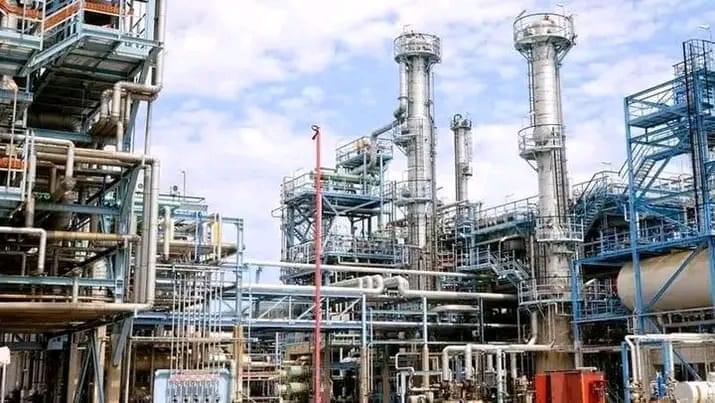
The Independent Petroleum Marketers Association of Nigeria (IPMAN) has expressed optimism that the Dangote Refinery will still commence the sale of petrol in Nigeria this August, as initially promised by Aliko Dangote, Chairman of the Dangote Group. The association also remains hopeful that the Port Harcourt Refinery, as pledged by the Group Chief Executive Officer of the Nigerian National Petroleum Company Limited (NNPCL), Mele Kyari, will begin operations this month.
Shina Amoo, Chairman of IPMAN, NNPC Depot, Ore Western Zone, recently conveyed this optimism, noting that while August is nearing its end, there is still potential for the Dangote Refinery to deliver on its promise. The 650,000 barrels per day (bpd) refinery in Lagos had set a mid-August target to release petrol into the Nigerian market, a deadline that has yet to be met.
Amoo expressed confidence in President Bola Tinubu’s directive for the NNPC and other oil companies to sell crude oil to local refineries in naira, a move intended to facilitate the commencement of operations. He also highlighted that the directive for the Dangote Refinery, a $19 billion project, to sell petroleum products to Nigerians in naira is a positive development.
According to Amoo, independent marketers are already purchasing petrol from depot owners in naira, rather than dollars, which he believes will bolster local refining operations. He praised the federal government’s plan to sell crude in naira, emphasizing that local refining would reduce the cost of petroleum products by eliminating freighting and landing expenses
You may like


Three Airtel Staffs Confirmed Dead in Terrorist Attack


Major shake-up in Army as new GOCs, PSOs, MNJTF Commander appointed


Meta abandons racial diversity programmes as Zuckerberg woos Trump
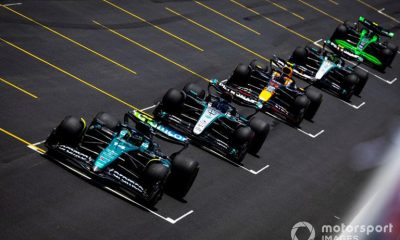

Red Bull explains what went wrong with RB20 F1 car


“My Biggest Regret After Singing Chop My Money ‘ – May D (VIDEO)


Tinubu Cannot Survive 2027 – Top Northern Politician Declares After Meeting With El-Rufai, Others
Business
Lanre Shittu CNG buses take over as Nigeria airport Shuttle
Published
5 days agoon
January 6, 2025By
Ekwutos Blog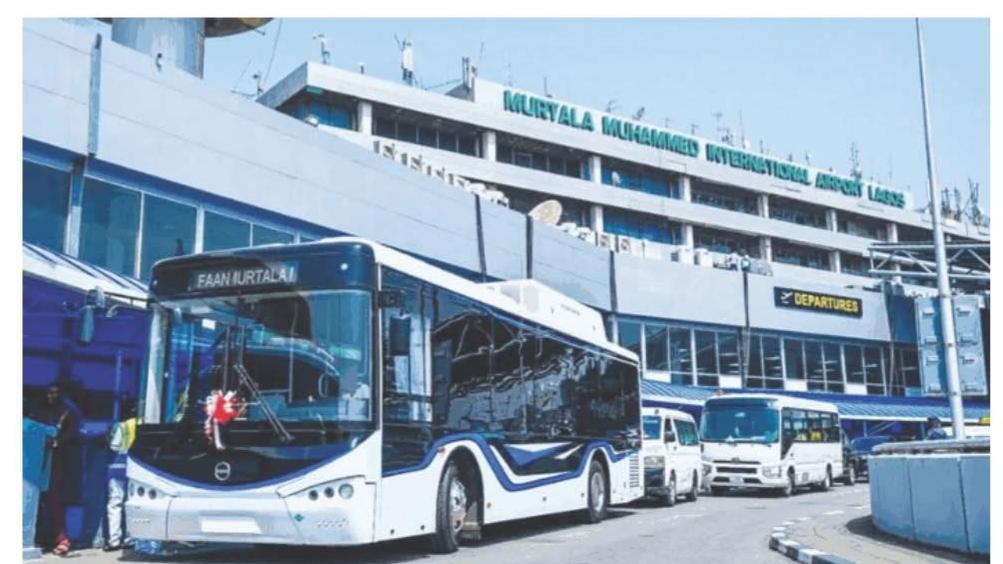
The federal government has commenced the deployment of locally assembled Lanre Shittu Motors’ brand of Compressed Natural Gas (CNG) buses for airport shuttle.
The first batch of the CNG-powered buses has been received at the Murtala Muhammed Airport, Lagos by officials of the Federal Airports Authority of Nigeria (FAAN), led by its Managing Director, Mrs Olubunmi Oluwaseun Kuku.
Business
Nigerian Fuel Prices on Track to Crash to N500 Per Litre in 2025
Published
1 week agoon
January 4, 2025By
Ekwutos Blog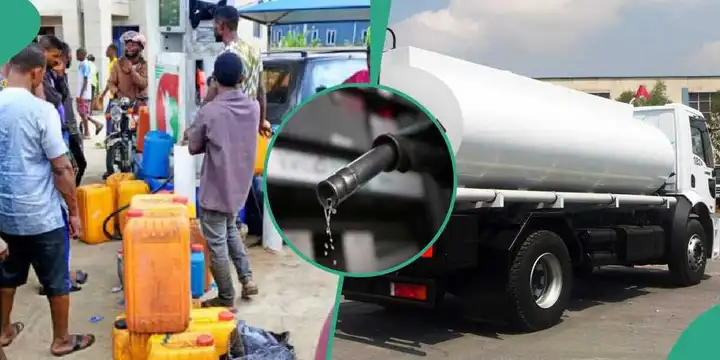
Oil marketers and other petroleum industry experts have forecast a reduction in petrol prices in 2025 to as much as N500/litre The resumption of operations of the Port Harcourt and Warri refineries will drive this anticipated crash in price They highlighted that a steady supply of petroleum products would encourage competition, leading to further price reductions
Petroleum product marketers and other stakeholders in Nigeria have projected a significant reduction in petrol prices by 2025. They highlighted that petrol, currently priced between N900 and N950 per litre at many filling stations, could drop to as low as N500 per litre during the year.
According to industry experts, this anticipated decline is attributed to the strengthening of the downstream sector, driven by the federal government’s deregulation policy.
Other factors contributing to the expected price reduction include a stable foreign exchange rate, increased price competition, the Naira-for-crude initiative, and the expected operations of the Port Harcourt, Warri, and Dangote refineries.
Stakeholders also noted that if these refineries supply the domestic market and accept payments in naira, it would further drive down petrol prices. Marketers share why fuel prices may reduce further The national publicity secretary of the Independent Petroleum Marketers Association of Nigeria (IPMAN), Ukadike Chinedu, described the upcoming operations of the Port Harcourt and Warri refineries as transformative for the downstream sector.
In an interview with Saturday Sun, he emphasised that these refineries would foster healthy price competition, a trend already becoming evident. He noted that both the Nigerian National Petroleum Company Ltd (NNPC) and Dangote have reduced petrol prices in recent weeks, highlighting the benefits of having multiple production sources rather than a monopoly. Ukadike expressed optimism that this development could drive petrol prices below N500 per litre by 2025 as more players enhance refining capacity. He also identified the federal government’s naira-for-crude policy as a critical factor in shaping petrol prices, predicting that it would curb inflation and ease pressure on foreign exchange.
The president of the Petroleum Products Retail Owners Association of Nigeria (PETROAN), Billy Gillis-Harry, expressed agreement with Ukadike’s views. He assured that the operational launch of the Port Harcourt and Warri refineries would result in more affordable fuel options for Nigerians.
Gillis-Harry emphasised that achieving lower petrol prices for consumers is a realistic prospect in 2025. Gillis-Harry said: ‘’As you can see, NNPC has reduced its ex-depot price from N1,045 per litre to N899 per litre for marketers, translating to N925 per litre at the pumps for the end users. This, I must say, is very commendable. These are not small drops, but massive drops from N1,045 to N899 ex- depot is a lot of drop.” He highlighted that a steady supply of petroleum products would encourage competition, leading to further price reductions in the coming year.
On his part, the publicity secretary of the Crude Oil Refiners Association of Nigeria (CORAN), Iche Idoko, stated that Nigerians would soon start experiencing the benefits of a deregulated market.
Idoko said: “Price drop is one of the characteristics of deregulation we had highlighted. As the industry settles in to the regime of full deregulation, we are bound to see competitions amongst players, which ultimately will benefit the consumers.”
He explained that competition would emerge in pricing, product quality, and credit facilities offered to bulk purchasers.
Marketers import 2.3bn litres of petrol In related news, Legit.ng reported that oil marketers have continued to import petrol into the country despite earlier agreements to patronise local refineries. Documents obtained from the Nigerian Ports Authority revealed that marketers have persisted in petrol importation. The data collected showed that imported petrol was docked at the Apapa Port, Tin Can Port and the Calabar Port.
Business
CBN: 1000 Exit Staff were voluntary – Cardoso
Published
1 week agoon
January 4, 2025By
Ekwutos Blog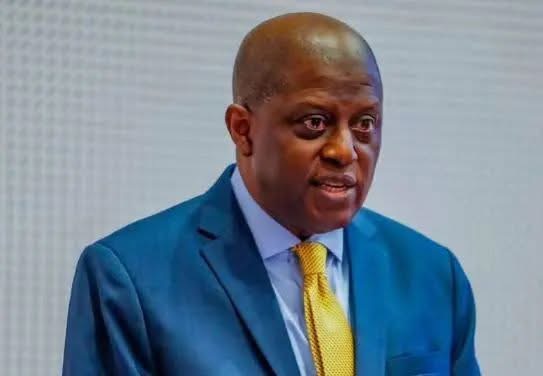
Olayemi Cardoso, governor of the Central Bank of Nigeria (CBN), said the 1,000 staff who left the bank were not forced to leave.
Cardoso spoke on Friday at the resumed house of representatives investigative hearing on the disengagement of the 1,000 workers by CBN.
On December 4, 2024, the apex bank said its early exit package (EEP) was entirely voluntary and without any negative repercussions for eligible staff.
CBN’s statement followed reports that 1,000 staff were sacked from the apex bank.
Reacting to the development, the house of representatives asked the CBN to suspend the “planned” retirement of 1,000 staff.
The lower chamber had also set up an ad hoc committee to investigate the “process and legality” of the exercise.
However, on Friday at the resumption of the investigative hearing, the CBN governor said the 1,000 members of staff were not forced to quit.
Cardoso, who was represented by Bala Bello, CBN’s deputy director of corporate service, also said the early exit programme, the restructuring and reorganisation was to optimise the bank for enhanced efficiency.
“They are basically ways and means through which the performance of an organisation is optimised by putting, ensuring that round pegs are put in right holes,” Cardoso said.
“The manpower requirement of the bank is actually met.
“I’m very happy to mention, Mr. Chairman and members of the committee, that the early exit program of the central bank is 100 percent voluntary.
“I believe several organisations across the world, and even within this country, both in the private sector and the public sector, are undertaking similar exercises. So nobody has been asked to leave. With a lot of humility, I will tell you that this same program that is taking place is not at the instance of the bank.”
‘CBN FACED WITH SEVERAL CHALLENGES, INCLUDING LACK OF CAREER GROWTH’
Cardoso said CBN had been faced with several challenges.
Credit: The Cable

Three Airtel Staffs Confirmed Dead in Terrorist Attack

Major shake-up in Army as new GOCs, PSOs, MNJTF Commander appointed

Meta abandons racial diversity programmes as Zuckerberg woos Trump
Trending
- Politics11 months ago
Nigerian Senate passes Bill seeking the establishment of the South East Development Commission.

 Business11 months ago
Business11 months agoInflation hits record high of 29.90% on naira weakness

 Politics7 months ago
Politics7 months agoBREAKING: Federal Gov’t Offers To Pay Above N60,000, Reaches Agreement With Labour

 SportsNews10 months ago
SportsNews10 months agoOlympic Qualifiers 2024: CAF Confirms Dates For Super Falcons Vs Banyana Banyana

 Politics10 months ago
Politics10 months agoGovernor Hope Uzodinma’s New Cabinet In Imo: The Gainers, The Losers

 Trending3 months ago
Trending3 months agoNYA demands release of ‘abducted’ Imo chairman, preaches good governance
- Entertainment11 months ago
American Singer Beyonce makes history as first Black woman to top country chart
- Business3 months ago
US court acquits Air Peace boss, slams Mayfield $4000 fine

